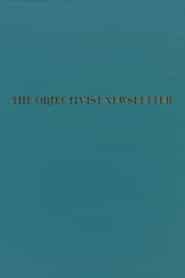

Ayn Rand’s lifelong passion for philosophy was rooted in her conviction that philosophy is the basic force shaping each of our lives and human history. After Atlas Shrugged, she turned to writing nonfiction, both to elaborate on the philosophy set forth in her novels, and to use her philosophy, which she named Objectivism, to explain crucial cultural events and fight the negative trends she observed.
From 1962 until 1976, she published and wrote for three successive periodicals: The Objectivist Newsletter, The Objectivist and The Ayn Rand Letter.
Many of her most significant essays — later collected into books such as The Virtue of Selfishness and Philosophy: Who Needs It — were first published in her periodicals.
The Objectivist Newsletter was produced from January 1962 to December 1965 (when it converted to magazine format under the title The Objectivist). This 224-page volume reproduces the entire contents of each issue.
— Ayn Rand, “Introduction,” The Virtue of Selfishness
The articles in The Objectivist Newsletter were written over forty years ago, but even when the subject is not philosophy, Ayn Rand’s philosophical perspective on the issues gives her essays a timelessness and relevance transcending the details of their day. For example, her article “‘Extremism,’ or The Art of Smearing,” extracts a powerful epistemological lesson concerning a widespread misuse of concepts . . . from the speeches at the 1964 Republican National Convention.
Many of the Newsletter essays were later anthologized, but many essays and other items were not and are unavailable in any other format. These include a number of book reviews and answers to philosophical questions from readers.
In addition, aficionados of Rand’s philosophy will find it fascinating to peruse certain regular features of the Newsletter. There are occasional editorial reports on the spread of Objectivism in the culture and on college campuses. The “Objectivist Calendar” lists upcoming events such as lectures and TV and radio appearances by Rand and her associates. While such items are undoubtedly dated, they nevertheless offer a glimpse into the history of Objectivism as an intellectual movement.
“Objectivism is a philosophical movement; since politics is a branch of philosophy, Objectivism advocates certain political principles — specifically, those of laissez-faire capitalism — as the consequence and the ultimate practical application of its fundamental philosophical principles. It does not regard politics as a separate or primary goal, that is: as a goal that can be achieved without a wider ideological context.
“Politics is based on three other philosophical disciplines: metaphysics, epistemology and ethics — on a theory of man’s nature and of man’s relationship to existence. It is only on such a base that one can formulate a consistent political theory and achieve it in practice. When, however, men attempt to rush into politics without such a base, the result is that embarrassing conglomeration of impotence, futility, inconsistency and superficiality which is loosely designated today as ‘conservatism.’ Objectivists are not‘conservatives.’ We are radicals for capitalism; we are fighting for that philosophical base which capitalism did not have and without which it was doomed to perish.”
— Ayn Rand, “Choose Your Issues,” The Objectivist Newsletter
Ayn Rand argues that “a change in a country’s political ideas has to be preceded by a change in its cultural trends; a cultural movement is the necessary precondition of a political movement.”
In particular, she holds that conservatives who attempt to oppose the spread of statism without articulating a clear moral and intellectual defense of capitalism — and without challenging the morality of altruism — are doomed to failure.
In a number of articles (some unavailable elsewhere), Rand analyzes the 1964 presidential race — e.g., “How to Judge a Political Candidate” and “It’s Earlier Than You Think.”
Though initially hopeful about Barry Goldwater’s candidacy, she ultimately concludes that “the philosophical vacuum exhibited in [his] campaign was unprecedented” and that his run is further evidence that “an election campaign is not the time to teach people the fundamentals of political theory, and a candidate is not a teacher” — and that “elections are won in every month of the year — except November.”
If, given the culture’s intellectual state, it is too early for fundamental political change, then what practical actions can be taken by advocates of capitalism?
In the inaugural issue of The Objectivist Newsletter, Ayn Rand names two problems of particular importance to “the ‘practical’ fight for freedom” (both as relevant today as in 1962), and she revisits these in subsequent articles. They are: the persecution of business under antitrust and the government’s power of censorship (the FCC).
The antitrust laws, Rand argues, are “an unenforceable, uncompliable, unjudicable mess of contradictions” that “have for decades kept American businessmen under a silent, growing reign of terror.” Under antitrust, she writes, “there is only one difference in the legal treatment accorded to a criminal or to a businessman: the criminal’s rights are protected much more securely and objectively than the businessman’s.”
In the inaugural issue of The Objectivist Newsletter, Ayn Rand discusses two issues of particular importance to the fight for freedom. The first is antitrust (see “Tyranny of Antitrust”); the second is the government’s power of censorship, exercised by the FCC.
In her article “Have Gun, Will Nudge,” Rand quotes FCC chairman Newton Minow attempting to deny that the FCC’s coercive monopoly over TV and radio broadcast spectrum gives it the power to dictate content to broadcasters (under threat of having their licenses revoked). Minow claims “there is censorship by ratings, by advertisers, by networks, by affiliates which reject programming offered to their area,” and insists that he is attempting “to free expression rather than stifle it.”
This, Rand argues, is an evasion of “the difference between economic power and political power, between a private choice and a government order, between intellectual persuasion and physical force” — and an ominous sign for free speech in America.
One unique regular feature of The Objectivist Newsletter is its “Intellectual Ammunition Department,” consisting of replies to questions from readers.
Ayn Rand and her contributing writers address such wide-ranging topics as: the evil of agnosticism, the nature of free will, the status of patents and copyrights, why capitalism is incompatible with religion, and how the government of a free society could be financed.
The result is an illustration of Objectivism’s unique approach to philosophic questions, and a broad sampling of how its principles apply to a range of crucial issues.
While some of the answers are included in Rand’s later books, many are not. Some notable topics not reprinted elsewhere are:
“Why does Objectivism reject ethical hedonism?”
“What are the respective obligations of parents to children and children to parents?”
“Since everything in the universe requires a cause, must not the universe itself have a cause, which is God?”
The Objectivist Newsletter featured reviews of books it judged to be of special interest to its readership. Rand’s goal was to help her readers “acquire relevant knowledge.” As she explained in regard to capitalism: “it is not enough to be for free enterprise on moral grounds. You must also know the historical case for it, and be able to answer the questions being raised about it today.”
Accordingly, the Newsletter reviewed books on history (e.g., works on F.D.R., on the history of American liberalism, on antitrust), on political philosophy (e.g., Isabel Paterson’s The God of the Machine), on economics (e.g., works by Ludwig von Mises and Henry Hazlitt), on philosophy (e.g., works on Aristotle and on the history of philosophy), and works of fiction by authors as diverse as Victor Hugo and Mickey Spillane.
These reviews also served to support praiseworthy work of other intellectuals by helping it find an audience.